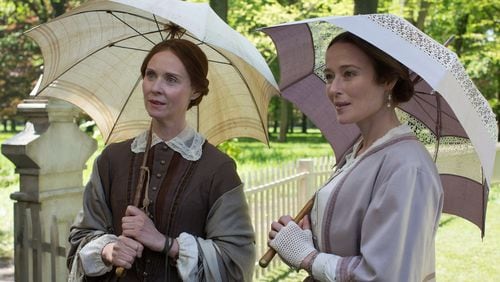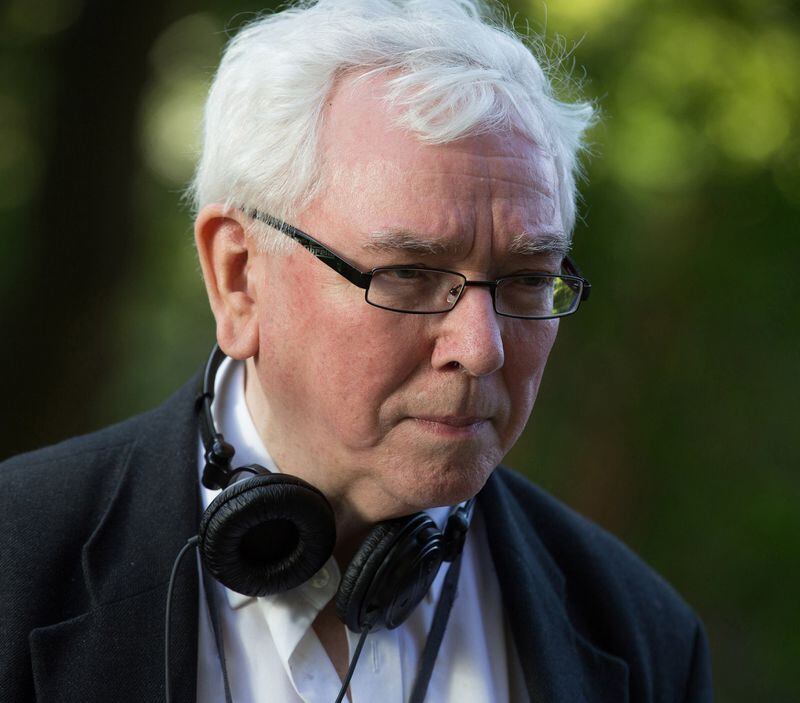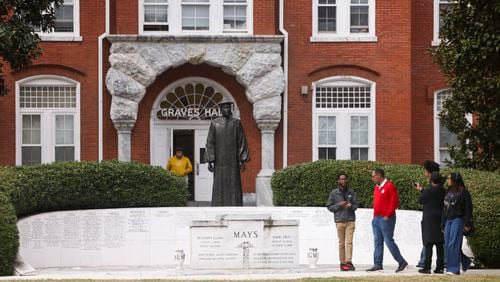British director Terence Davies is hardly the most prolific filmmaker in the business. His career spans almost 30 years, during which time he has made only seven feature films.
From the beginning, he garnered considerable critical attention for his stylized (and autobiographical) family dramas "Distant Voices, Still Lives" (1988) and "The Long Day Closes" (1992). His subsequent projects were adaptations: of the novels "The Neon Bible" by John Kennedy Toole (1995, filmed in Atlanta) and "The House of Mirth" by Edith Wharton (2000); the Terence Rattigan play "The Deep Blue Sea" (2011); and, most recently, "Sunset Song" (2015), based on a book by Lewis Grassic Gibbon.
His latest effort is “A Quiet Passion,” a highly personal drama about the troubled life of the (posthumously) celebrated American poet Emily Dickinson (1830-1886). Cynthia Nixon stars, alongside Jennifer Ehle (as her sister) and Keith Carradine (as their father).
Davies, 71, spoke about the film during a recent telephone interview from his home in Colchester, England.
Q: What drew you to Emily Dickinson and her story?
A: First and foremost, it was her poetry, and then a desire to discover and learn more about her. In the process, there were three other aspects of her life that I felt we had in common. When she came back from Mount Holyoke (Female Seminary) as a teenager, she was ill with homesickness, and as a 10-year-old boy, my family sent me to Wales to convalesce (from a chest infection), so I knew what it was like to feel that. I also related to her spiritual struggle, the idea of having a soul and a conscience, and the need to guard and protect them. I was raised a very fervent Catholic, but from the ages of 15 to 22, I fought intense doubts about religion, until I ultimately realized that I was an atheist. As the youngest of 10 children, I also identified with how she withdrew into her family. When she first gets home, she's ecstatic with happiness, but by the time she senses that her haven has become something of a prison, it's too late. That also spoke to me very profoundly.
Q: Why was Cynthia Nixon the right choice for the role?
A: Mainly because she's such a wonderful actress. I'd met her years ago for a film that never materialized, and I'd never forgotten her. She was also very familiar with the poetry, which was invaluable, and she knew the one-woman show ("The Belle of Amherst"). What's more, she bore a striking resemblance to the only known photograph of Dickinson. It took us over four years to raise the money for the film, and she was incredibly loyal to the project all the while. She kept saying, "You'll never finance the movie with my name attached to it," which wasn't at all true. Her involvement actually helped quite a lot.
Q: Would you ever be interested in making a more commercial sort of studio movie?
A: A part of me wishes I could, but clearly I'm not Hollywood material. It's never been an issue, and it's probably never going to happen. I operate on a very modest end of the scale. I can't imagine spending $60 million on a film, if not much more than that. I can't even grasp those figures. I have no talent for that sort of filmmaking. The more money involved, the greater the interference.
Q: What memories do you have about working in Atlanta on “The Neon Bible”?
A: Only lovely ones. I wasn't particularly fond of the heat (he laughs), but all of the local people in the cast and crew were fantastic. The main thing I'm sad about is that I wasn't as rigorous as I should have been. The film wasn't very good, frankly, so I take full responsibility for that and feel as if I let everyone down.
About the Author







